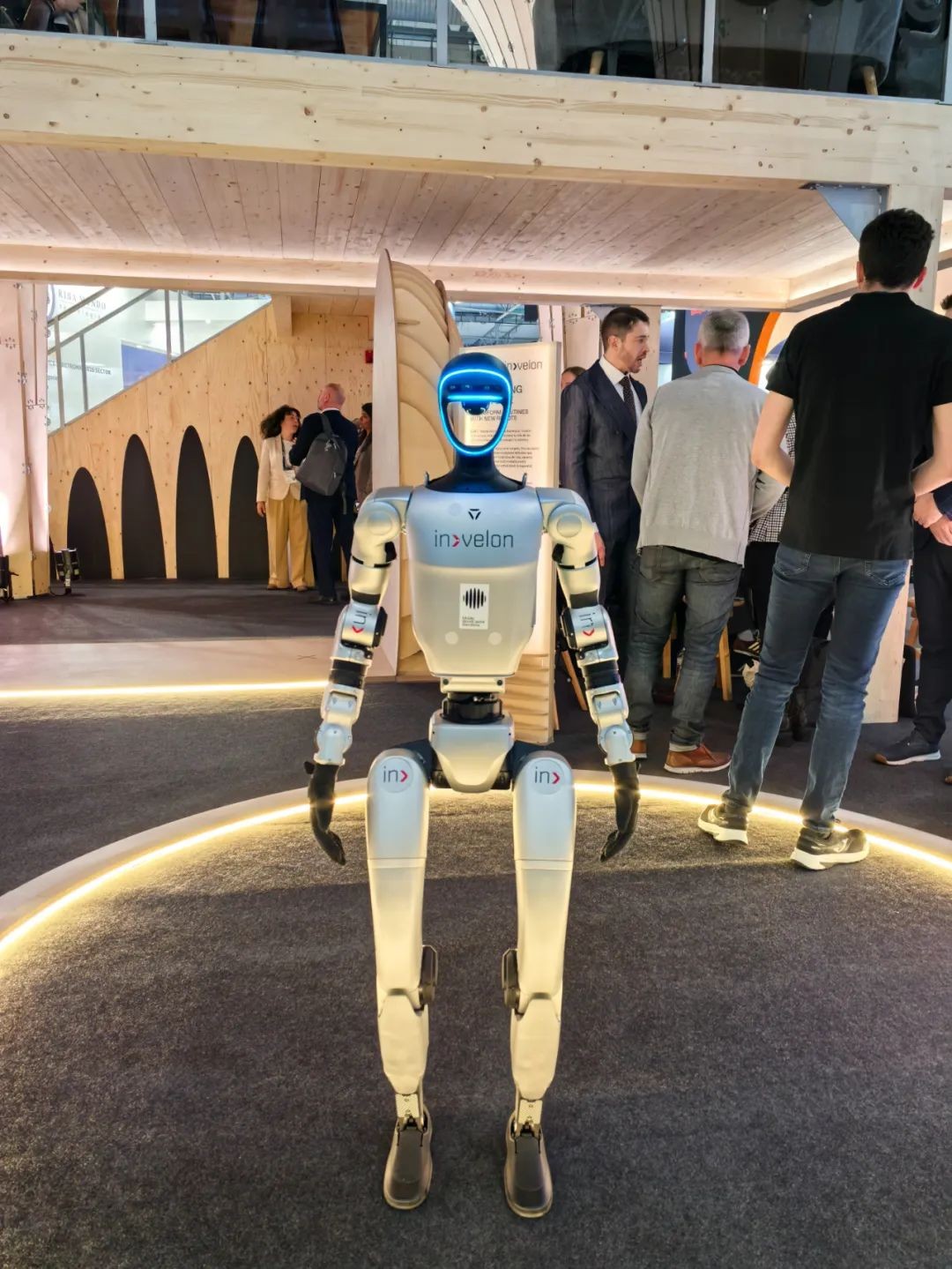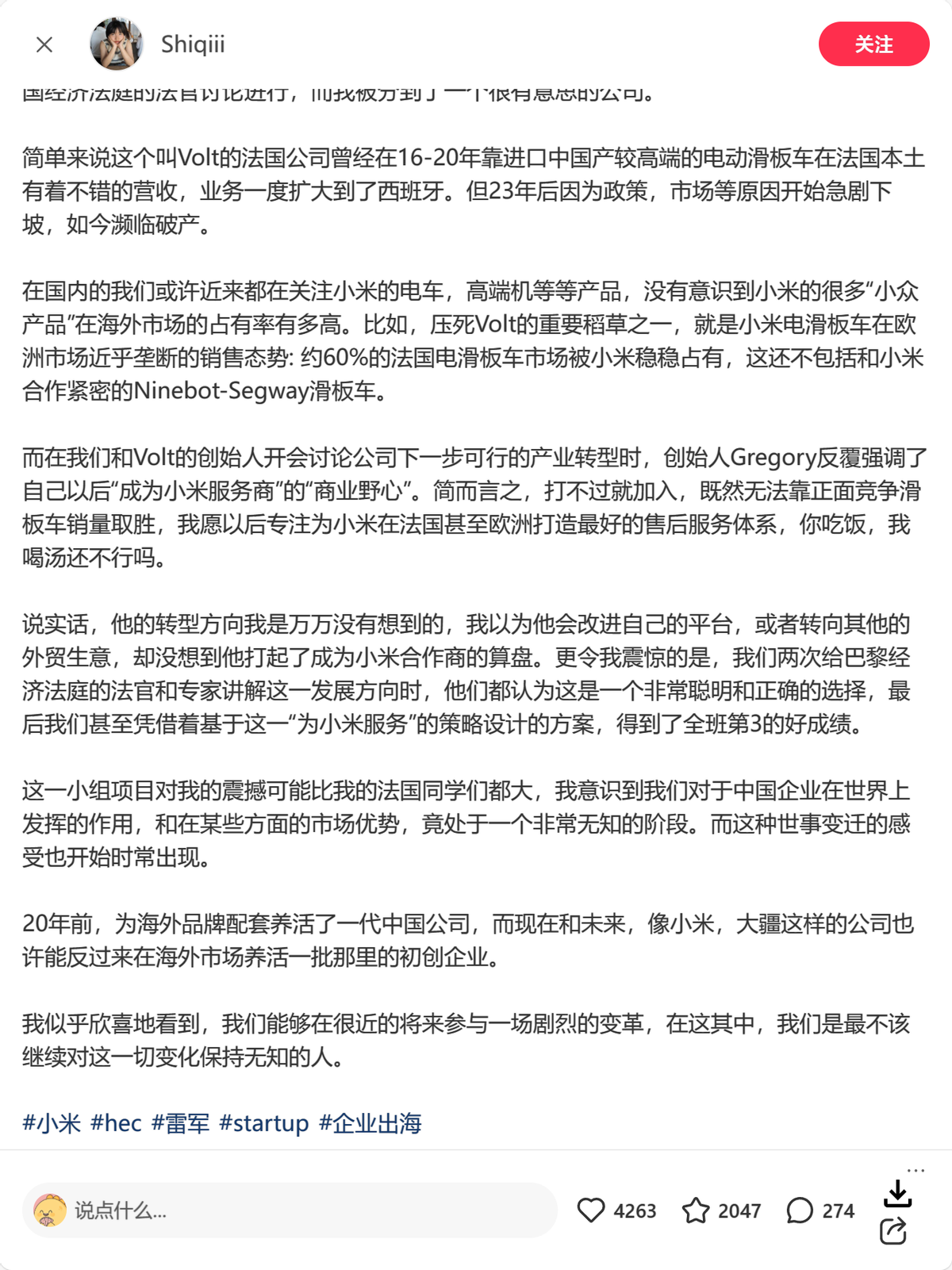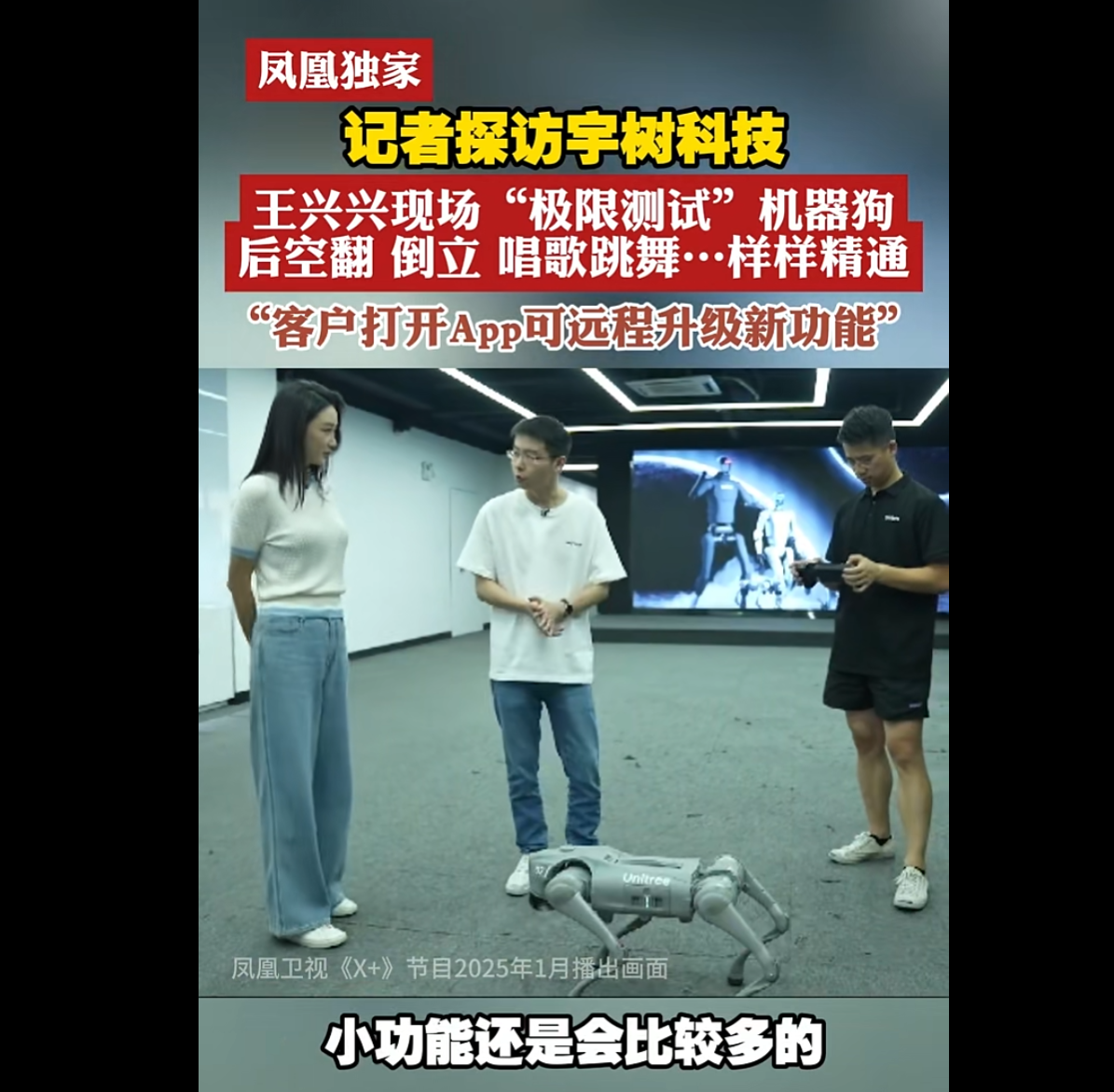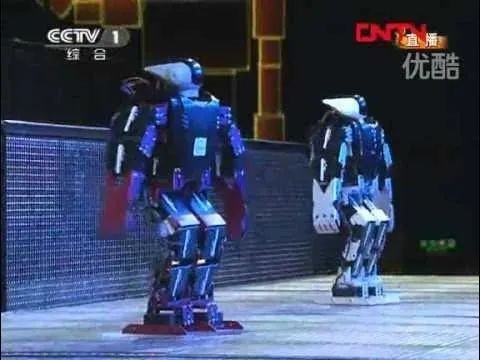The tide has turned: European companies start selling rebranded Unitree robots
![]() 03/07 2025
03/07 2025
![]() 560
560
The concept of humanoid robots is heating up. At the Mobile World Congress in Barcelona held these two days, a humanoid robot displayed at the booth of Spanish company Invelon became one of the most eye-catching exhibits. This robot can stand, walk, and even interact with audiences by shaking hands and greeting them, much like the popular Unitree robot from a while ago. In fact, this star product bearing the Invelon logo is actually the humanoid robot G1 launched by Chinese company Unitree Technology in May last year, with Invelon simply rebranding it for sales.

(Image source: Xianzao Classroom)
Moreover, the influence and market share of Chinese tech products and brands in Europe are increasingly high, prompting many European companies to start thinking about earning money by supporting Chinese enterprises. Once, Chinese enterprises had to serve well-known European tech companies like Siemens and Mercedes-Benz to find a way out. Today, the overseas success of tech enterprises like DJI, Xiaomi, and Unitree has gradually reversed their positions. For Chinese tech enterprises that have always wanted a place at the top of the value chain, times have indeed changed.
Europe is seeking business opportunities from Chinese companies
What Invelon provides on-site is Unitree Technology's "Internet celebrity" product, the G1 robot, which has a starting price of 99,000 yuan in China and 16,000 USD in overseas markets. For the more expandable and development-supported version, the overseas price starts at 30,000 USD. It has three types of grippers that can be used for daily object handling or more complex industrial and life services after programming.
Who is Invelon? The official website shows that it is a Spanish company engaged in enterprise services, mainly earning revenue by packaging technologies and products such as AR/VR/robots into solutions and selling them to customers. Companies like PICO, Unitree, Microsoft, HP, and Leica are its partners.

For decades, Chinese enterprises have played the role of contract manufacturers in the global industrial chain, producing products for international giants like Apple or providing local supporting services for European and American tech companies. Although this is a rather stable business, it undoubtedly occupies a relatively weak position in the value chain. The scene at MWC marks a quiet reversal of the industrial landscape. Invelon's CTO Marc Sole Farre admitted that their company purchased several G1 robots from Unitree Technology at a price of 50,000 euros each half a year ago and is now mainly promoting Unitree's robot products to European customers.
Moreover, the main product Unitree Technology sells overseas is the quadruped robot. Over the past few years, Invelon has also sold many Unitree quadruped robots to universities and research institutions in Europe. After recognizing the potential of Chinese tech products, Unitree robots have also been included in their options.
This rise is by no means an isolated case. A few days ago, a netizen studying in France on Xiaohongshu shared that Volt, a French company that once profited from importing Chinese electric scooters, is now unable to compete against Chinese brands like Xiaomi, which have a 60% market share, and is instead seeking to become a "Xiaomi service provider." The new business plan of Volt's founder is to join if they can't beat them. Since they can't win through direct competition, they are willing to focus on building the best after-sales service system for Xiaomi in France and even Europe. Isn't it fine if you eat the rice and I drink the soup?

More surprisingly, the author mentioned that judges and experts at the Paris Economic Court believe this is a very smart and correct choice. In a sense, when a product or a field is dominated by others, if the only goal is to "make a living," then the best approach is not confrontation but to become a part of their ecosystem. In the early years, Chinese enterprises that provided supporting services for various European and American brands all thought this way. However, now that the ecological positions have been swapped, the more successful Chinese enterprises are in going overseas, the more foreign enterprises willing to join the overseas ecosystems of Chinese enterprises there will be.
The rapid growth of Unitree Technology's international business confirms this trend - orders in 2024 increased several times compared to the previous year, with over a thousand humanoid robots sold overseas, with Western European countries like Germany and Italy becoming the main markets. This is not just the success of one enterprise but a microcosm of the transformation from Made in China to Created in China.
Chinese tech companies have made it
It is worth mentioning that in a Caixin report, Unitree Technology employees told reporters that they don't mind customers "rebranding" and displaying the products: "People with discerning eyes can tell at a glance that it's a Unitree product, which won't cause misunderstanding. Their display can actually help us increase our popularity." In reports by local media such as LA VANGUARDIA and El Nacional, it was also clearly stated that these robots were produced by Unitree.
Some overseas entrepreneurs said that Chinese company robots are not only impressive in terms of technology and can achieve many excellent operations, but more importantly, they can be produced at a very low cost, making humanoid robots accessible to more people. Conversely, for overseas entrepreneurs, if they want to operate in countries like the UK and France, it is difficult to reduce the cost of local production. Therefore, European countries also lack high-tech enterprises that require manufacturing support, such as humanoid robots.
A meaningful case comes from the battery sector. Europe has previously attempted to cultivate a number of well-known local battery companies, however, they have all fallen or are about to fall, including former star Swedish company Northvolt, which has entered bankruptcy proceedings; French company ACC, which has suspended factory expansion; French company Verkor, whose technology route has fallen behind after production; British company Britishvolt, which has applied for bankruptcy protection; Italian company Italvolt, which is rumored to be "on the brink of collapse"; and Norwegian company Freyr, which has suspended battery production. According to Bloomberg analysis, Europe dominates 16 battery factories, with 11 of them having been delayed or canceled.
BloombergNEF pointed out in its "Electric Vehicles Outlook 2024" report that in the field of new energy vehicles, the global price of lithium iron phosphate battery cells is as high as 95 USD/kWh, while the price of this type of battery cell in China is only 53 USD/kWh. China has global leading enterprises like CATL and BYD as the backbone of the industrial chain, which can support the development of industries such as automobiles, robots, aerospace, and more. In contrast, even if Europe has strengths in certain areas, it is difficult for it to earn profits in the industrial chain.
Returning to the Unitree G1 product, Unitree Technology founder Wang Xingxing mentioned in a previous interview with Phoenix Satellite TV: "Unlike humans, G1's head is equipped with a 3D lidar and depth camera. Its brain position is not really the brain but just a sensor that allows it to perceive the environment 360 degrees. We have done a teardown demonstration. Although it is currently a cutting-edge robot globally, its structure is not complex. It consists of joint motors, circuit board controllers, cameras, connecting rod transmissions, as well as cameras and controllers. The materials are mainly aluminum alloy and high-strength engineering plastics, with very high strength."
In the lidar sector, leading enterprises such as RoboSense and Hesai Technology also come from China. Therefore, such a robot with a simple structure is actually a combination of multiple leading products.
On the other hand, there are also limitations to the scenarios where robots are used. "For example, in 2024, we deployed our humanoid robots to the car factory of NIO to transport parts on-site. And we basically completed the entire workflow in 2024. For production and assembly involving truly detailed parts factories, it would be better to deploy them in 2025."

In other words, China has a rich manufacturing sector, allowing robots to enter these operational fields and become better with use. However, in the very generalized areas that ordinary people desire, such as washing clothes, cooking, serving tea, and pouring water, the world has not yet achieved particular maturity. Whoever has more scenarios and more industrial chain resources will have more hope of gaining more initiative.
More Stories
At this year's Mobile World Congress (MWC 2025), besides Unitree Technology, there were many other important announcements. For example, China Mobile, Huawei, and LEJU jointly unveiled the world's first humanoid robot equipped with 5G-A technology. 5G-A technology provides stronger signals and lower latency, and with better network performance, robots will also become more intelligent and flexible. Communication technology is also one of Huawei's killer apps in entering the field of humanoid robots.
LEJU Robotics, formerly known as the Harbin Institute of Technology Intelligent Robotics Club, coincidentally, like Unitree, also has the experience of appearing on the Spring Festival Gala. In 2012, the Harbin Institute of Technology Intelligent Robotics Club participated in the robot performance program "Wall-E." At that time, the equipment was imported from abroad. Now, LEJU Robotics has become an important force in the field of humanoid robots and cooperates closely with Huawei.

As early as November 2023, LEJU Robotics launched its first humanoid robot KUAVO (Kuafu) based on Huawei's open-source Hongmeng (KaihongOS). In March 2024, Huawei Cloud and LEJU Robotics reached a cooperation to jointly explore application scenarios for the "Huawei PanGu large model + Kuafu humanoid robot" and build an open ecological platform for "humanoid robots +".
Last June, the "Kuafu" humanoid robot equipped with the PanGu large model made its debut at the Huawei Developer Conference, becoming the first Hongmeng humanoid robot interconnected with Hongmeng ecological devices.
It is worth mentioning that LEJU Robotics has also mapped out a clear development path for itself - first in the field of education and research, then in industrial robots for factories, medical fields, etc., and finally entering the household and livelihood sector. In January this year, LEJU Robotics just delivered its 100th full-size humanoid robot.
Unitree, LEJU, Zhongqing, UBTECH, Magic Atom... The Chinese humanoid robot industry already boasts a long list of names. The combined force of these enterprises will lead to the emergence of more Chinese ecosystems in the field of humanoid robots and their expedition to the world.
Source: Pinecone Finance








